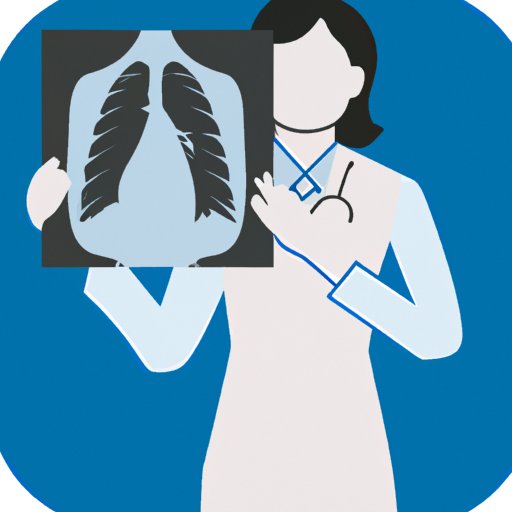Introduction
Radiology is a medical specialty that uses imaging techniques such as X-rays, computed tomography (CT) scans, magnetic resonance imaging (MRI), and ultrasound to diagnose and treat diseases. Radiologists are responsible for interpreting these images and providing treatment recommendations. Becoming a radiologist involves a rigorous education process, intense training, and specific skills. In this article, we will explore the steps necessary to become a radiologist, the different types of radiologic careers available, the working environment of a radiologist, and the skills and benefits associated with the profession.
Education and Training Necessary to Become a Radiologist
The first step in becoming a radiologist is to complete a four-year undergraduate degree program in a field related to medicine, such as biology, chemistry, or physics. After completing the prerequisite courses, applicants must then take the Medical College Admission Test (MCAT) and apply to medical school. Once admitted, medical students typically spend four years in medical school, followed by a one-year internship in a clinical setting and a three- to five-year residency program in radiology.
During their residency, aspiring radiologists spend time in rotations at both hospitals and clinics, gaining experience in reading and interpreting imaging tests. They also learn about the different types of radiation used in medical imaging and how to use them safely. At the end of their residency, radiologists must pass a comprehensive exam administered by the American Board of Radiology in order to be board certified.

Different Types of Radiology Careers
Once they have completed their education and training, radiologists can pursue a variety of career paths. The most common type of radiology is diagnostic radiology, which involves using imaging tests to diagnose diseases and provide treatment recommendations. Other types of radiology include interventional radiology, which involves using imaging tests to guide minimally invasive treatments; nuclear medicine, which involves using radioactive material to diagnose and treat diseases; and radiation oncology, which involves using radiation therapy to treat cancer.

Working Environment of a Radiologist
Radiologists typically work in hospitals, clinics, and private practices. Their typical schedule consists of working 8- to 12-hour shifts during the week, with additional hours on weekends and holidays depending on the facility’s needs. Working conditions vary depending on the type of facility, with some radiologists working in clean, quiet environments and others working in loud, busy hospitals.

Skills Needed to Succeed as a Radiologist
To be successful as a radiologist, there are certain skills and qualities that are essential. Technical expertise is a must, as radiologists must be able to accurately interpret imaging tests and recommend appropriate treatments. Strong communication skills are important, as radiologists must be able to effectively communicate their findings to other healthcare professionals. Finally, problem-solving ability is key, as radiologists must be able to quickly identify and address any issues that may arise.
Benefits of Being a Radiologist
In addition to feeling personally fulfilled by helping others, being a radiologist has several other benefits. According to the Bureau of Labor Statistics, radiologists earned an average salary of $354,908 in 2019, making it one of the highest-paying medical specialties. Additionally, radiologists often enjoy flexible schedules, allowing them to balance their professional and personal lives.
Conclusion
Becoming a radiologist requires a significant amount of education and training, but the rewards of the profession are well worth the effort. While the job requires technical expertise, strong communication skills, and problem-solving ability, radiologists are highly compensated for their efforts and enjoy the satisfaction of helping others. For those interested in pursuing a career in radiology, the rewards are plentiful.
(Note: Is this article not meeting your expectations? Do you have knowledge or insights to share? Unlock new opportunities and expand your reach by joining our authors team. Click Registration to join us and share your expertise with our readers.)
